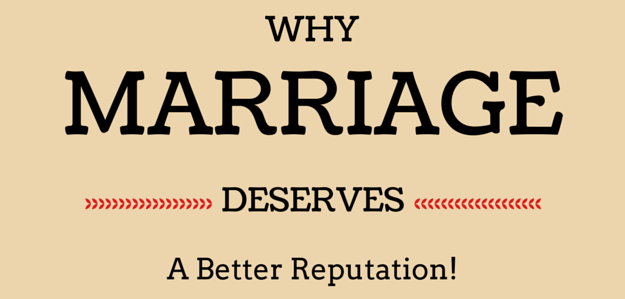 Despite media reports and the rampant commentary about the sad state of marriage (including the near ubiquitous notion that 50% of all marriages end in divorce), current research on marriage trends does not support this notion! According to a new Pew Research Center analysis of census data from 2012, one out of five adults ages 25 and older had never been married, compared to one out of 10 adults in the same age range in 1960. The percentage of adults who have never married is at a record high, with those who eventually marry doing so at a later age.
Despite media reports and the rampant commentary about the sad state of marriage (including the near ubiquitous notion that 50% of all marriages end in divorce), current research on marriage trends does not support this notion! According to a new Pew Research Center analysis of census data from 2012, one out of five adults ages 25 and older had never been married, compared to one out of 10 adults in the same age range in 1960. The percentage of adults who have never married is at a record high, with those who eventually marry doing so at a later age.
So what makes this increase of the “never married” a positive trend? The main reason is that it means fewer people are making the decision to marry impulsively. Delaying marriage allows us time to understand what qualities are most desired in a partner, as well as more time to find a compatible partner. In addition, postponing that big event until later in life not only allows people time to develop emotional maturity, but to achieve some level of financial security as well. Both factors are strong contributors to marriage stability, and its lasting success.
Another reason more couples are waiting later to marry is likely due to today’s more permissive social attitude. Living together, even having and raising children together, before becoming husband and wife is much more acceptable now. This trend means that more unhappy relationships will end by breaking up, instead of getting a divorce. There’s overall less pressure to marry these days, regardless of the circumstances.
The Pew Research Center data also revealed that the median age of first marriage today is 27 years for females and 29 years for males. In contrast, post-war America of the 1950s represented the earliest ages for marriage, dropping to 20 years for women and 23 years for men. Most marriages that began in the 1950-1960 era were based on traditional role models, with males serving as the breadwinner and females as homemakers. Although partners were dependent on what each other provided, an emotional connection was not top priority in these relationships.
In fact, not until the 1970s, when more women began entering the work force and gained reproductive rights, did the traditional marriage model start to change. This period in history, not surprisingly, had our highest divorce rates, as people’s expectations of marriage partners shifted. The new priority and focus became finding a soul mate, instead of just someone to share financial responsibility and household chores. Once this social upheaval of the 1970s passed, our divorce rate decreased accordingly, and has continued to decline in the decades that followed.
While the popular notion that half of all marriages fail is not accurate, couples with a college degree divorce less frequently than those with less education. Overall, the divorce rates in our country are in fact currently stable and not on the rise. Experts predict that marriages of the 2000s will have even better chances of succeeding as people become more selective when choosing partners and marry for love, not out of need.
The general public also seems to think that the current trend of delayed marriages and lower divorce rates will continue, as the majority of younger adults surveyed cite that society is just as well off if people have priorities other than marriage and children. Most survey participants state they would like to marry one day, and feel that couples who plan to stay together long term should eventually marry.
These opinions bode well for a future of marriages with more stable foundations, which benefit both the couples and their families.
Will this trend change the role or focus of couples counseling? Perhaps in some cases. Partners in high-functioning relationships may have greater expectations of each other and maintaining this higher level of connection may require “advanced” professional guidance. But most of the typical issues couples seek counseling for (financial disagreements, sexual issues, communication struggles) will remain unchanged.
If you feel that you need assistance regarding any of your relationship goals, do not hesitate to seek professional help. The current trends on marriage are actually quite positive and reveal interesting data for couples and singles alike.